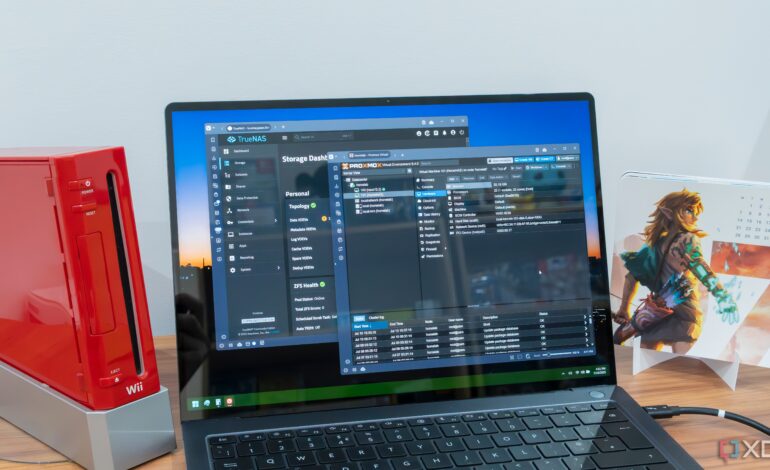Explore 7 Unique Linux Distros Tailored for Specific Tasks

Linux, a versatile kernel powering a multitude of operating systems, has gained traction as an alternative to traditional platforms like Windows 11. Among its many distributions, some are designed with highly specific purposes, offering unique functionalities that may not be immediately apparent. Here, we delve into seven distinctive Linux distros that cater to particular needs, showcasing their capabilities and potential benefits for users.
Tails: Privacy First
At the forefront of privacy-focused operating systems is **Tails**, a Linux distribution designed to provide anonymity and security. Running entirely from a USB drive, Tails leaves no trace on the host machine, ensuring users’ activities remain confidential. This feature is particularly vital for individuals in sensitive situations, such as investigative journalists or those facing domestic abuse. Integrated with the **Tor** network, Tails encrypts internet traffic, making it nearly impossible for external monitoring to track browsing habits. This operating system is invaluable for anyone needing discretion in their online activities.
Kali Linux: A Security Specialist
Switching gears to cybersecurity, **Kali Linux** stands out as a premier choice for security professionals and enthusiasts. This distribution is equipped with a comprehensive suite of tools for penetration testing, security monitoring, and forensic analysis. Tools such as **Wireshark**, **Nmap**, and **Maltego** are included, providing extensive capabilities for identifying vulnerabilities in networks and systems. While it may not cater to average users, those heavily involved in cybersecurity will find Kali Linux an essential asset for their work.
Rancher: Docker Management Simplified
For developers working extensively with **Docker**, **Rancher** is a specialized Linux distribution designed exclusively for running Docker containers. This lightweight operating system maximizes system resources by focusing solely on container management. Users looking to streamline their self-hosting environment will benefit from Rancher’s simplicity and efficiency, making it a preferred option for those delving deep into service testing and deployment.
GParted Live: Disk Management Made Easy
**GParted Live** may not fit the traditional notion of a full-fledged operating system, but its utility is undeniable. As a standalone, bootable tool, it offers robust disk and partition management capabilities. Users can resize, format, and manipulate disk partitions with ease, often outperforming built-in tools found in systems like Windows 11. GParted Live is an essential tool for anyone looking to manage storage effectively, making it a smart addition to any USB drive.
Proxmox: Virtualization Powerhouse
For those interested in virtualization, **Proxmox** serves as an excellent solution for managing virtual machines and containers. Known as the **Proxmox Virtual Environment**, this operating system allows users to run multiple systems on a single machine. Its lightweight architecture and resource management capabilities make it ideal for home labs and self-hosting projects. Users can install various operating systems and applications, making Proxmox a versatile tool for creating a robust home network.
TrueNAS Scale: Your Private Cloud
Building on the principles of storage management, **TrueNAS Scale** is tailored for network-attached storage (NAS) systems. This operating system can convert any computer into a powerful storage solution, enabling users to create storage pools and manage files seamlessly. With the ability to run applications like **Nextcloud** for easy file management and sharing, TrueNAS Scale is an outstanding choice for users seeking to establish their own private cloud. Its flexibility and functionality make it a standout option for personal or small business use.
OpenWrt: Enhancing Router Functionality
Finally, **OpenWrt** is a specialized Linux distribution designed for embedded devices, particularly Wi-Fi routers. This operating system offers a robust suite of management tools for configuring network settings, enhancing security, and extending the lifespan of older routers. By providing regular updates and security patches, OpenWrt can significantly improve the performance and security of legacy devices. Users with outdated routers should explore OpenWrt as a viable solution to enhance their network security and functionality.
In conclusion, Linux’s adaptability is showcased through these unique distributions tailored for specific tasks. From enhancing privacy and security to optimizing storage and networking, these operating systems provide valuable solutions that extend beyond the typical desktop experience. As the demand for specialized applications continues to grow, exploring these Linux distros may open new avenues for users seeking to leverage the capabilities of Linux in innovative ways.






